Archive for July 26th, 2012
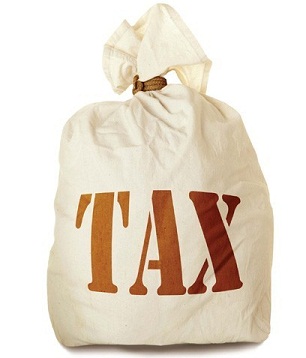
Tax collection problematic
 (CNS): Collection of the premier's proposed tax on expatriate worker permit holders will be difficult and costly to collect, according to local experts as well as members of the opposition. With no culture of direct taxation, few employers, especially small businesses, have systems in place that will allow government to easily collect this 10% cut of workers' pay. Local finance experts are already issuing warnings to government that lawful tax avoidance system will be in place almost as quickly as government can come up with a system to collect the money it hopes will plug its budget gap.
(CNS): Collection of the premier's proposed tax on expatriate worker permit holders will be difficult and costly to collect, according to local experts as well as members of the opposition. With no culture of direct taxation, few employers, especially small businesses, have systems in place that will allow government to easily collect this 10% cut of workers' pay. Local finance experts are already issuing warnings to government that lawful tax avoidance system will be in place almost as quickly as government can come up with a system to collect the money it hopes will plug its budget gap.
Moreover, opposition politicians are warning that the cost of collection and enforcement will outweigh the hoped for cash that the tax proposes to raise.
With a significant number of tax experts on island, as well as international companies with offices in other tax free jurisdictions, experts already say that employees in the offshore sector, which offers the greatest pool of high paid work-permit holders and potential revenue to government coffers, will move quickly to adapt to any system government puts in place to avoid paying the tax.
Government will be stretched and need to employ a new army of civil servants to analyse and assess the people who should be paying, how the tax should be collected and how it can enforce payment.
Speaking in the wake of the news that Premier McKeeva Bush intends to introduce a direct taxation on the earnings of work-permit holders, which he called a "community enhancement fee", the opposition leader warned that employers will become very creative about how they pay their staff.
“Government will need to be very careful depending on significant revenue from this form of income tax,” Alden McLaughlin said. “Employees may become very creative about how they pay people and are likely to start paying them in other countries where possible. We don't have a culture of income tax so most employers won't have any systems in place to deal with this. Government will need to create a whole new system and hire more civil servants to collect this tax.”
These concerns were also raised by the independent member for North Side, Ezzard Miller, who said that he did not believe government had done any analysis over the “totally ill-conceived policy” or given any consideration to how this tax would be applied and collected and how it would enforce compliance. With no existing agency, government would have a major task ahead of it to do a full screening of who should be paying and how much, which would be a costly exercise. “We will need to spend a million to collect this,” Miller added.
In addition, government has a poor track record of collecting taxes outside of the offshore sector where there is not an agency responsible for enforcement, such as with work permit taxes.
Government abandoned school fees and garbage fees in recent years because of its inability to collect the cash. Making employers compliant when it comes to the law on health insurance and pensions had been beyond the grasp of successive governments, and the HSA continues to lament the failure of people to pay their hospital bills.
Despite announcing his intention to impose this new 10% tax on foreign workers who are earning morethan $20,000 per year, Bush has given no indication as to how this tax would be assessed or collected, by which government agency and how government would enforce compliance.
The premier said the new tax was the lesser of several evils when it comes to taxation, which he said the UK were forcing him to introduce regardless of his efforts to cut expenditure.
However, a statement released by the governor’s office on Thursday afternoon suggested that the budget in which this tax proposal is supposedly contained is far from a fait accompli as the UK’s economic expert who is advising the Cayman government on the budget is not yet in receipt of the government's latest financial plan.
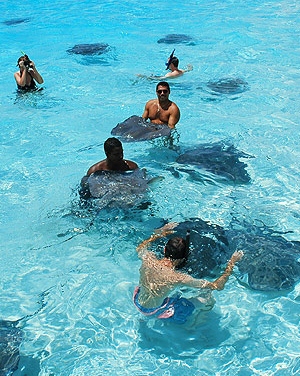
Numbers falling at famous Stingray City
 (CNS): Research conducted by the Guy Harvey Research Institute with the Cayman Islands Department of Environment has confirmed fears that the number of Stingrays at the Cayman Islands most popular tourist attraction are falling. The census this year found the stingray population at Stingray City has decreased by around 38% compared to the last census in 2008. The researchers have also raised concerns over the low number of male samples tagged in the most recent analysis and are now trying to find out why the numbers are falling. Blood samples have been taken by researchers to determine if the diet of squid fed to the rays by the majority of tour operatorsis affecting the animal¹s health.
(CNS): Research conducted by the Guy Harvey Research Institute with the Cayman Islands Department of Environment has confirmed fears that the number of Stingrays at the Cayman Islands most popular tourist attraction are falling. The census this year found the stingray population at Stingray City has decreased by around 38% compared to the last census in 2008. The researchers have also raised concerns over the low number of male samples tagged in the most recent analysis and are now trying to find out why the numbers are falling. Blood samples have been taken by researchers to determine if the diet of squid fed to the rays by the majority of tour operatorsis affecting the animal¹s health.
“A long-term plan of monitoring the numbers of rays and their health is required,’ said officials from the Guy Harvey Research Institute (GHRI) in a release this week. “Everyone in the Cayman Islands benefits from the presence of this unique marine interactive site. Every advertising campaign or tourism related article featuring the Cayman Islands has these iconic animals up front and prominently displayed. It is time the government of the Cayman Islands returned the favor by supporting on-going research of the stingrays¹ population status and well-being by releasing funds in the Environmental Protection Fund collected for this purpose.”
The Sandbar in the North Sound has a large number of wild rays that are accessible to tourists every day of the year. As a result the socio-economic value of the rays to the Cayman economy is enormous. On average, each animal can generate up to $500,000 in revenue per year, or $10,000,000 over the course of a 20-year life span.
Research was started by the GHRI in 2002 when all the stingrays that frequent the two main sites were caught by hand and tagged with a PIT (passive integrated transponder) at the base of their tail. During the initial count, 164 rays were tagged, weighed and measured at the Sandbar over two years. Since then, tag retention has remained near 100% so many animals tagged ten years ago still have their PIT today. The sex ratio of 90% females to 10% males has remained fairly constant over this time.
From 2010 tour operators and casual observations indicated a sudden decline in the number of rays at the Sandbar. The GHRI conducted a census in January 2012 and sampled only 61rays in the standard three day research period representing a significant 38% decrease in numbers compared to 2008count.
Armed with this information researchers are now eager to find out what has caused the decline. Predation by sharks has been ruled out for a lack of evidence of shark bites and the corresponding demise of sharks. However, fishing mortality is a consideration as there is no national protection for stingrays – outside of the Wildlife Interactive Zones (WIZ) .
Another possibility is the overall health of the rays, which is why GHRI enlisted the support of the Georgia Aquarium veterinary staff for this year¹s census. The addition of the GA vets also allowed the research work to become much more technical. Dr. Tonya Clauss (Director Animal Health, Georgia Aquarium), Dr. Lisa Hoopes (Nutritionist, Georgia Aquarium) and Nicole Boucha (Senior Veterinary Technician, Georgia Aquarium) arrived in Grand Cayman loaded with equipment to take blood and store these precious samples in liquid nitrogen until analysis could be achieved back in Georgia.
Over three days in July the team sampled 57 rays only 5 of which were male at the Sandbar down from 61 in January with assistance from DoE staff and several volunteers. The team also spent a day at the original Stingray City and sampled 11 rays , just 2 male) and caught 3 rays at Rum Point, bringing the total to 71 rays sampled.
Each ray was caught by hand and transferred to the pool in the workboat where they were measured and tagged, and then blood was taken from the underside of the base of the tail. Some of this blood was immediately centrifuged to make counts of white blood cells. The rest was frozen in liquid nitrogen for shipment back to the lab in the Georgia Aquarium.
The processing of samples and data will take several weeks the researchers hope to have a better idea about what is undermining these valuable creatures and how better to manage their future well-being.
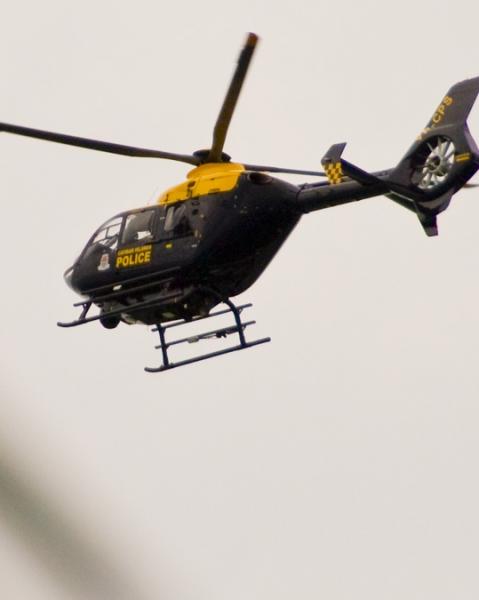
Cops choked over chopper
 (CNS): Only two weeks after the RCIPS announced that officers had been trained as first medical responders so the police helicopter could be used as an air ambulance, the police management are seeking urgent clarification from government about the future of the crime fighting machine. An RCIPS spokesperson said Thursday that there had been no discussion between the police and the government about the sale of the helicopter. The premier announced he would be selling the controversial chopper in order to save more than $1.7 million per year during his address to the nation on Wednesday regarding new taxes and spending cuts for his 2012/13 budget.
(CNS): Only two weeks after the RCIPS announced that officers had been trained as first medical responders so the police helicopter could be used as an air ambulance, the police management are seeking urgent clarification from government about the future of the crime fighting machine. An RCIPS spokesperson said Thursday that there had been no discussion between the police and the government about the sale of the helicopter. The premier announced he would be selling the controversial chopper in order to save more than $1.7 million per year during his address to the nation on Wednesday regarding new taxes and spending cuts for his 2012/13 budget.
Bush said government had agreed with the expenditure review committee, which was set up to identify savings to the public purse, that the police helicopter should be sold as “it is simply unaffordable to this country”.
In the wake of the announcement the police said that the RCIPS had not been consulted about the impact of the helicopter’s loss to policing in the Cayman Islands.
“The sale of the police helicopter has not been discussed, nor has the impact of its loss been the subject of any input by the RCIPS,” a spokesperson stated. "The loss of the Air Operations Unit would have a considerable impact on our ability to maintain our current level of operational effectiveness. Equally it would negate the extension of its service as an air ambulance, which was so recently introduced. We are seeking urgent clarification from government on this matter.”
Less than two weeks ago Police Commissioner David Baines had described the chopper as transforming policing in the Cayman Islands and that there could be no doubt that the helicopter was an important resource, as he talked about how the RCIPS was learning more and more how it could best utilize the machine and ensure it provided value for money to the public purse.
Baines said it had proved an invaluable tool in the fight against serious crime, drug interdiction and had also saved lives. He said the helicopter was instrumental in apprehending one of the robbery suspects in the recent bank heist in Buckingham square and had helped police locate suspects on many other occasions.
The recent training of police officers to become medical responders is part of a larger project involving HSA staff which will see the helicopter utilized as an air ambulance.
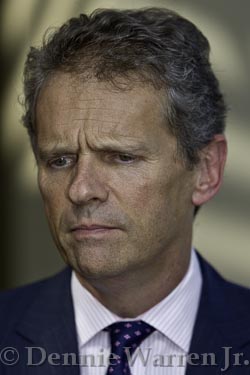
Still no UK budget approval
 (CNS): Following comments by Premier McKeeva Bush on Wednesday evening implying that he had forwarded his new 2012/13 budget plans to the UK for approval, the governor’s office has issued a statement that appears to contradict the claim. In a carefully worded statement released Thursday afternoon Governor Duncan Taylor revealed that budget negotiations are ongoing. The governor said that the UK economic advisor working with the Cayman government is still waiting to see detailed proposals on the Cayman budget that he could recommend to the Overseas Territories minister, Henry Bellingham. Bush said in a broadcast address to the nation on Wednesday that government was now awaiting “approval from the FCO of our Budget parameters” in respect to his new spending plans, which included the expat tax. (Photo Dennie Warren Jr)
(CNS): Following comments by Premier McKeeva Bush on Wednesday evening implying that he had forwarded his new 2012/13 budget plans to the UK for approval, the governor’s office has issued a statement that appears to contradict the claim. In a carefully worded statement released Thursday afternoon Governor Duncan Taylor revealed that budget negotiations are ongoing. The governor said that the UK economic advisor working with the Cayman government is still waiting to see detailed proposals on the Cayman budget that he could recommend to the Overseas Territories minister, Henry Bellingham. Bush said in a broadcast address to the nation on Wednesday that government was now awaiting “approval from the FCO of our Budget parameters” in respect to his new spending plans, which included the expat tax. (Photo Dennie Warren Jr)
Taylor did not comment on the new direct taxation on the earnings of work-permit holders that has been proposed by the premierbut pointed out that the FCO’s Economic Advisor had set out the broad framework for a sustainable and credible budget to the Cayman government.
“He would need to see a draft budget which fits that framework before he could recommend to Minister Bellingham that he approve it,” Taylor said. “He has made clear that he would expect the Cayman Islands Government to achieve this through a combination of expenditure savings and measures to raise revenue: the precise nature of these is largely a matter for the Cayman Islands Government but they must be credible and sustainable.”
See both the governor and the premier's statements below.

Supermodel faces law suit over punch up
 (CNS): Cayman’s Selita Ebanks is facing possible legal action as a result of an alleged punch up between her and Telemundo model Liza Irizarry, 34, who says that the former Victoria Secret's model broke her nose. Ebanks allegedly took offense to Irizarry greeting her boyfriend with a kiss inside a Miami nightclub last year. Numerous reports across the international media have reported Irizarry's claims that she had a complex fracture after Ebanks slugged her one as she warned her to stay away from Ebanks's man, BET star Terrence J. The supermodel and TV star, who has denied the accusation, has never been arrested over the alleged fight, which is said to have happened last November.
(CNS): Cayman’s Selita Ebanks is facing possible legal action as a result of an alleged punch up between her and Telemundo model Liza Irizarry, 34, who says that the former Victoria Secret's model broke her nose. Ebanks allegedly took offense to Irizarry greeting her boyfriend with a kiss inside a Miami nightclub last year. Numerous reports across the international media have reported Irizarry's claims that she had a complex fracture after Ebanks slugged her one as she warned her to stay away from Ebanks's man, BET star Terrence J. The supermodel and TV star, who has denied the accusation, has never been arrested over the alleged fight, which is said to have happened last November.
However, Irizarry claims she suffered a serious injury as a result of the incident.
"When she saw me, she said, 'Don't be kissing my man',” she told a New York tabloid. "I said to myself, 'So what, that's my friend.' That's when she hit me on the nose. I went to swing back – that's when all her friends jumped in. I felt hair pulling and fists coming at me."
Miami police have never arrested or charged Ebanks over the alleged assault but Irizarry did file a police report and sent them her medical records.
Nine months later the model is now seeking financial recompense for pain, suffering and medical bills. "I'm so angry, because she thinks she can get away with anything," Irizarry said. "You shouldn't be allowed to put your hands on anyone for no reason. Me saying hello to someone doesn't give you the right to hit me."
Cayman’s Selita (29) , who recently appeared as a phoenix in Kanye West's short film 'Runaway' , has said that the allegations are "baseless".
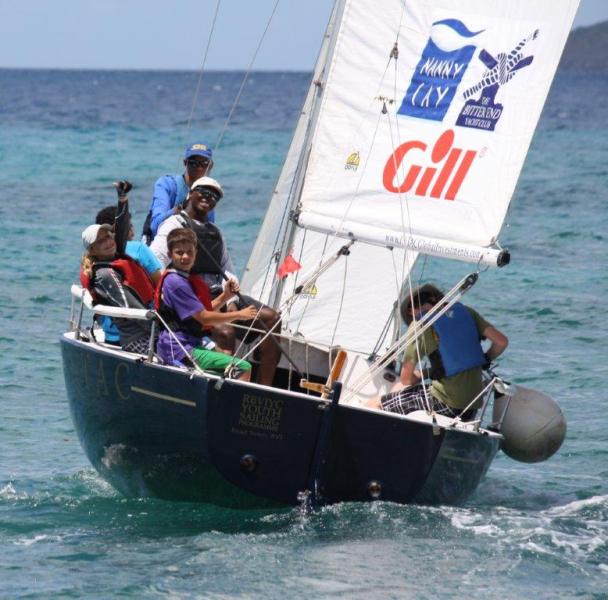
Young sailors compete courtesy of Rotary
 (CISA): Cayman was strongly and proudly represented by a team of five youth sailors on the weekend of 13th to 15th July 2012 at the Kids and the Sea (K.A.T.S.) Premier’s Cup in Tortola, British Virgin Islands. This year marked the 14th annual regatta held just off Nanny Cay Marina in Sir Francis Drake channel. The event was well attended with representatives from Anguilla, Bahamas, Puerto Rico, U.S.A. Sail Caribbean, Trinidad and Tobago, and the British Virgin Islands, making for stiff competition. The Cayman team was generously sponsored by the Rotary Club of Grand Cayman, which enabled helmsman Pablo Bertran and his crew of Florence Allan, Jesse Jackson, Ronan Jennings, and Justino Rodriguez to compete.
(CISA): Cayman was strongly and proudly represented by a team of five youth sailors on the weekend of 13th to 15th July 2012 at the Kids and the Sea (K.A.T.S.) Premier’s Cup in Tortola, British Virgin Islands. This year marked the 14th annual regatta held just off Nanny Cay Marina in Sir Francis Drake channel. The event was well attended with representatives from Anguilla, Bahamas, Puerto Rico, U.S.A. Sail Caribbean, Trinidad and Tobago, and the British Virgin Islands, making for stiff competition. The Cayman team was generously sponsored by the Rotary Club of Grand Cayman, which enabled helmsman Pablo Bertran and his crew of Florence Allan, Jesse Jackson, Ronan Jennings, and Justino Rodriguez to compete.
They participated in this prestigious international event helping them continue to develop their skills, gain important racing experience, and meet other young sailors from the Caribbean region.
After a long day of travelling to Tortola, BVI, the team was able to practice on Friday 13 July, during which they became familiar with the boat. Kelvin Browne, the coach of the Cayman team said, “The team trained on J22 keel boats at the Cayman Islands Sailing Club, but as the racing in the BVI was on a Caribbean one-design IC24, it was imperative that we were able to practice and that the full attention and concentration was required from all team members”.
The racing officially began on the morning of Saturday 14th July. The conditions were similar to Cayman, windy – around 15 knots with gusts up to 20 knots with big swells, making it relatively easy for the team to adapt quickly and race into one of the top positions. At the end of the first five races, the Cayman team was tied for third with 19 points behind Anguilla (7 points) and Bahamas (17 points). Coach Brown said, “Throughout the first five races, the team showed great strength in sailing downwind and I was impressed by the team’s ability to stay with the regatta’s top contenders. After the lunch break, the Cayman team struggled with consistency and due to the rules of the regatta, which did not allow for discarding the lowest position achieved, the team found themselves tied for fifth after a total of 11 races.”
Although the sailors felt physically exhausted, their spirits remained high and they performed even better during the racing on Sunday, battling the teams who raced into top positions on previous day. The conditions on Sunday were even tougher, with winds around 20 knots, gusting to over 22 knots, but this did not stop the Cayman team. In two of the races, Cayman placed second, narrowly being edged out at the finish line. In the 17th and final race of the regatta, as the team was fighting and clawing for every position and pushing themselves to the limit, one of the crew members slipped overboard while rounding the leeward mark. Helmsman, Bertran, and his remaining crew, executed an expert man-overboard pick-up before the team lost too many spaces.
At the end of the regatta, Anguilla raced to a convincing first place, while the Cayman team achieved a promising sixth place out of a total of eight teams. Overall, the results were extremely close with only nine points separating second and sixth place. Kelvin Browne said, “The kids performed extremely well, but the final result did not reflect how well they really sailed, nor how talented this team is. Unfortunately the regatta’s no discard rule negatively affected our overall placing, but the team learned a lot throughout the regatta about competition and teamwork.” Coach Browne continued, “I look forward to bigger and better things at next year’s Premier’s Cup with some more consistency, and I hope that the team continues to compete in the local club racing on a more regular basis.”
The entire team expressed their sincere gratitude for all of the support they received including that from the sponsor (The Rotary Club of Grand Cayman), members of the Cayman Islands Sailing Club, and the parents of the team members.

UWC fundraiser for outstanding Cayman students
 (CNS): The UWC Cayman Islands is holding its signature fundraising event, Blue Jack Night, this Saturday, with all proceeds going towards the education of outstanding students at one of 13 United World College campuses worldwide. UWC Cayman Islands is a charitable organisation that selects exceptional Caymanian students and raises funds so that they can receive a vigorous post high-school education at UWC studying towards an International Baccalaureate Diploma. In order that selection can be based solely upon merit, UWC Cayman Islands provides all selected students with full scholarship to attend UWC. (This year's UWC scholarship recipient Madeleine Rowell)
(CNS): The UWC Cayman Islands is holding its signature fundraising event, Blue Jack Night, this Saturday, with all proceeds going towards the education of outstanding students at one of 13 United World College campuses worldwide. UWC Cayman Islands is a charitable organisation that selects exceptional Caymanian students and raises funds so that they can receive a vigorous post high-school education at UWC studying towards an International Baccalaureate Diploma. In order that selection can be based solely upon merit, UWC Cayman Islands provides all selected students with full scholarship to attend UWC. (This year's UWC scholarship recipient Madeleine Rowell)
In order to fund scholarships, UWC Cayman Islands relies upon corporate and individual donations, as well as fundraising events, such as Blue Jack Night. In 2012, UWC Cayman Islands received donations from the first time from the Cayman Islands Compliance Association (CICA) for CI$5,000, Rotary Club of Grand Cayman Central for CI$1,000 and Conyer Dill & Pearman (Cayman) Ltd. for CI$2,500.
Longstanding corporate support has been given by Maples and Calder, who donate US$25,000 annually, and Deutsche Bank (Cayman Islands), who donate $20,000 annually. Additionally, UWC Cayman Islands receives private donations from individuals; those from alumni, family and friends of UWC Cayman Islands are directed to the Dr Pedley Memorial Fund.
The cost to attend UWC varies depending on the campus, and ranges from $18,000 to $45,000 annually, with each student attending for two years. As such, UWC Cayman Islands is committed to selecting as many qualified students as financially possible, with the aspiration to increase selection over time.
The selected students participate in a rigorous two-year academic programme incorporating coursework, community service, a major research project as well as creative and physical activities. The UWC movement was founded in 1962 by educationalist Kurt Hahn, who also established the notable Outward Bound programme. To date, CIUWC has provided scholarship to over 60 Caymanian students, many of whom have gone on to hold leadership positions in both the public and private sector.
Companies and individuals interested in making a donation to UWC Cayman Islands may contact the Board at CIUWCFoundation@yahoo.com. More information about the UWC schools and movement can be found at www.uwc.org.
Blue Jack Night will be held 28 July, 7pm – 12 midnight, at the Art & Recreations Centre (ARC) next to Cayman International School. Tickets are CI$50 and are available at Funky Tangs or call 916-7589 / 916-0839 or e-mail ciuwcfoundation@yahoo.com. (Limited number of tickets sold at the door)
Door Prizes include a Cayman Airways ticket & an iPhone. The Champagne reception is sponsored by Jacques Scott and Hors d’oeuvres sponsored by Ragazzi.
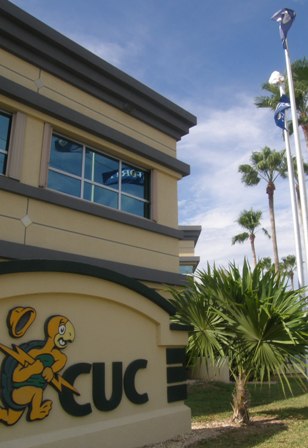
CUC reports no major damage following blackout
 (CNS): The power provider on Grand Cayman said Thursday 25 July, that no major harm had come to its equipment after an island-wide shut down on Wednesdays. Although power had been restored to all customers by Wednesday night officials from CUC warned that there could still be some interruptions to the power supply over the next two days but these would not exceed more than two hours at a time. Yesterday's full scale power outage was down to a fault which occurred on the transmission system at the Hydesville Substation in West Bay which caused several generating units to shut down .
(CNS): The power provider on Grand Cayman said Thursday 25 July, that no major harm had come to its equipment after an island-wide shut down on Wednesdays. Although power had been restored to all customers by Wednesday night officials from CUC warned that there could still be some interruptions to the power supply over the next two days but these would not exceed more than two hours at a time. Yesterday's full scale power outage was down to a fault which occurred on the transmission system at the Hydesville Substation in West Bay which caused several generating units to shut down .
“Island-wide outages such as what was experienced yesterday occur from time to time on small island power systems such as in Grand Cayman,” Vice President Transmission Andrew Small said. “As a result of the restoration to date there appears to be no major equipment damage from the outage which will impact customer reliability.”
As CUC continues to restore its system to normal operations fit said there could be some minor service interruptions within the next 48 hours not to exceed one hour in outage time for each outage where possible.
Apologizing for the inconvenience the outage caused CUC said that all power had been restored across the island by 8;30pm on Wednesday evening.

Bad tax & terrible timing
The recent announcement that the government is planning to introduce a payroll tax (to be called a ‘community enhancement’ fee) is a bad idea at a bad time. The proposal seems to be to remove the legal requirement for employers and employees to pay pensions for work permit holders and to replace this with a mandatory payroll tax of essentially the same percentage (5% by employees and 5% by employers).
The idea is that this will have a neutral affect because the new tax is the same as what everyone is now paying in pensions.
But that neutrality argument makes no sense for two reasons.
1. Employees will now not have the 10% pension savings which they had before. Instead they will have to pay 5% of their salary to the government and they will now NOT have the other 5% contributed to their pension in their name by their employer. The employee is therefore losing 10% and that’s cash for CIG to blow irresponsibly, not pensions for a later date for the employee.
2. Employers will also be worse off because many of them will have no choice but to opt to pay the 5% pension for the employee in order to keep them happy. That means higher recruitment costs and higher personnel expenses for existing employees. In some cases employers won’t opt in but in many others, such as within the financial services sector, the employers will feel that they have no choice but to do so to continue to recruit the right type of employees and to keep compensation packages competitive.
Community enhancement or division?
The government is disingenuous in its proposal to call the new tax a “community enhancement” fee. First the existing basket of indirect taxes of over 500 million have been utilised to “enhance” the community for the past 5 decades, so there is no reason to think that we now need to find a unique or additional way to do this.
Secondly, why is the community only being “enhanced” by expats’ taxes? If it is truly a community fee it should be paid by all those in the community (for example, a fee of 200 dollars to be paid by every employee per year), but we all know the political reasoning behind this and it has nothing to do with community enhancement. It will, however, further divide the community.
It's also bad politics
The government will no doubt now try to blame their “need” to do this on the FCO. But while the FCO has asked for years for a more sustainable tax base, they have fallen short of demanding any particular form of tax. In fact, their main focus has been on the need for the Cayman Islands Government to reduce its expenses.
So instead of making a difficult decision in an election year and finding other ways to reduce expenditure, the government will take what they mistakenly feel is the “easy” option and tax those that are not on the electoral list.
Their political mistake is that this decision will have a damaging impact on the local economy and Caymanians will also be hurt when the fallout begins.
Finally, those that point to existing payroll taxes in other financial centres to support introducing one in the Cayman Islands miss a crucial point: Cayman has had to increase indirect taxes and fees in many other areas over the years precisely because the governments were trying to avoid any form of direct taxation. As a result, some of our costs, fees etc are higher than in some of these countries used as examples of payroll taxes. But now the Cayman Islands will not only have those higher fees, it will also have the burden of the payroll tax to deal with, because clearly the government is not going to reduce any of its existing fees and indirect taxes.
Moving targets
As a purely practical matter, the Government will likely only be able to collect taxes from those companies that have a proper system in place with proper records etc.
Unfortunately for the financial services sector they will end up being the ones that are relied upon for the taxes actually collected. Many of the smaller more informal firms, such as smaller construction companies etc, will struggle to have systems in place and it will cost more to chase them than what is ultimately collected.
And therein lies the crux of one of the biggest challenges this new proposal will face: the financial services sector is full of persons who understand how to structure their affairs to minimize taxes in accordance with the law. Readers will recall now that this is essentially what they do for a living for their clients. How then do you imagine will the Cayman Islands government be able to effectively collect from a sector that will spend time and resources finding clever ways to minimise their taxes legally?
There are a host of other issues, such as the infrastructure needed to manage this new tax, but these are not mentioned here for brevity. Nonetheless, with the current state of the economy and the political sentiments against the current government, they could not have chosen a worse time to make such a terrible decision.

In response to the payroll tax announcement
This makes me want to puke! Not so much for what the premier has announced but for the fact that Caymanians have sat on their hands allowed things to go this far and yet Caymanians have done nothing more substantial than bray like a jackass with a case of colic. Far too often Caymanians blame our plight on past administrations, other people, and myriad external factors – but we continually fail to accept that the person we look at in the mirror is the prime culprit behind our descent into the abyss.
Make no mistake, Caymanian born and bred stupidity and complacency is the prime cause of the mess we are in; not expats, not past administrations (or even present administrations): they have only done what Caymanians either encouraged or allowed.
It is easy to blame others, but the truth is that years upon years of ignorance, years upon years of mindless and idiotic voting, and years upon years of ghastly complacency and poor choices on the part of "born" Caymanians is what has plunged us to this depth.
Our autocratic maroon wastes money with impunity. He makes sweetheart deals and gives away our birthright to enrich opulently wealthy collaborators. He ridicules the rational leaders among us, and he all but dares us to do anything about it. As the country becomes stifled with debt, Bush gives away rights to future tourist tax dollars to an already fabulously rich developer! He fails to curb his extravagant spending and trim the expenses as urged to by the UK. Now he has the audacity to declare, out of the blue, a payroll tax!
And yet Caymanians do nothing but pass gas about it. We have turned into a country rife with lazy, complacent people, incompetent morons unable to plot a sound course for ourselves, so we haul up the sail under the command of even bigger morons .
The Cayman Islands is brimming with poltroons who whine and bitch and complain but are too self-involved, too impotent and too cowardly to do much else than snivel and whimper like whipped puppies. These lemmings who smile as they head over the cliff make me sick! The huge number of recreants in these islands make me ashamed to be called "Caymanian".
Caymanians push out their chest and say "I am Caymanian, worship me!" but yet they cower like sycophants before a despot who is bringing their so-called "beloved" islands to the brink of disaster: these kind of people are nothing more than contemptible craven caitiffs.
"Beloved Isle Cayman" my stinking foot! Show me someone who loves these islands enough to do more than sing off key about them with a misty nostalgia in their eyes and I might believe those words. Far too many of our people are inflated with the putrid flatulence of some pathetic semblance to ethnic pride but are too yellow-bellied to manifest any real pride in their own land and empower themselves and make their voices heard.
Caymanians claim to be a wise and independent people. Ha! What a joke we are making of that idea! No wonder we moan that we are the laughingstock among local expats. "Professing themselves to be wise, they became fools…" Yep! That's us! We deserve all the contempt and derision than can be heaped upon us. Just look at the man we chose to lead us! (Well not me but a big bunch or born and bred morons chose him.) We are quick to give our opinion and pontificate on anything and everything, but when it counts the most, Caymanians as a whole are too impotent to impose their will in any meaningful way. In unabashed arrogance we lord it upon those who visit and work here but in reality a vast number of us are a cadre of cringers, too fearful to go nose-to-nose and do what has to be done to get the point across with any tenacity, courage or meaningful impact.
Show me loud, boisterous, passionate 24/7 protest marches that angrily demand that the UDP step down; show me likenesses of Makeewah and his minions burned in effigy all across these islands; show me work stoppages and strikes; show me UDP/Makeewah meetings aborted due to a deafening chorus of boo's and chants from an angry throng of people who think he and his minions need to go NOW. (Somebody show me some bloody courage, dammit!) Make some signs for us to wave, organise the grunting masses; let me see that Caymanians have some balls and I may cease to feel the urge to put a bag over my head when out with expats who know me and can brand me as being Caymanian.
I can hear the lily-livered snivelers among us now: "Oh no! We can't do that! It would cause instability." "It would look bad." "It might scare off investors". To these lackeys I say "Wake the hell up, you damn idiot!" Can't you see this country is already doomed if we continue to stand doltishly by picking our noses and whining? Don't you think we already look pretty damn bad and are looking worse by the day! What investors? The only investors around are the ones Mac wooed by giving up concessions and favours as if Cayman were a cheap whore. If the sky does not fall when a substantial part of the country grinds to a halt because of a glitch at CUC, the sky will not fall when the country grinds to a halt because of a loud and clear call to good governance and civil resistance to despotic power. Yeah, darling … it might be time to get a little rude!
For too long I and precious few others bold enough to tell it like it is have borne the brunt of being labelled as firebrands because we publicly have gone against the powers that be in regard to critical issues, while the rest of you snivelling whiners sat in the shadows. If there was any sign of life among you pusillanimous zombies it was usually expressed by quiet nodding and the occasional murmur of approval, all the while you look around in paranoia that you might be labelled a non-compliant rebel by expressing support for those who were exercising their right to free speech and putting it on the line.
If you read my postings here you know I tend to speak my mind. I am usually no less candid in public venues I can assure you. If you think for a moment and recall the voices that have abraded our lords and masters the most; think about those whose few who are brave enough to be outspoken and pro-active on important issues, those whose stubborn non-acceptance of every whim of government have made a difference: my voice was among those that you have heard.
Now it is time for more than just talk! Bush loves debate, darling! He relishes the opportunity to exchange words. He thrives on hot air. As long as we merely talk, Bush knows his tyrannical reign is quite secure. As long as his subjects remain suitably docile he knows they are impotent to stop him from doing whatever he wants.
More talk will not change things. It is time for action. I will be contacting those who I know are like-minded to begin to organise mass protests. I know others will be doing the same shortly. Icall on many many many more others reading this to do likewise.
Caymanians! Wake the hell up! It is time to stop whimpering and do something! It is time for concerned Caymanians to take off the kid gloves and come together en masse and make our will be known! If this goes like the referendum vote and mass protests fails to materialise, then Caymanians indeed are the pathetic clowns we claim that some expats take us for.
Please circulate this message and make it go viral all across this land. Do it for your country; do it for yourselves!